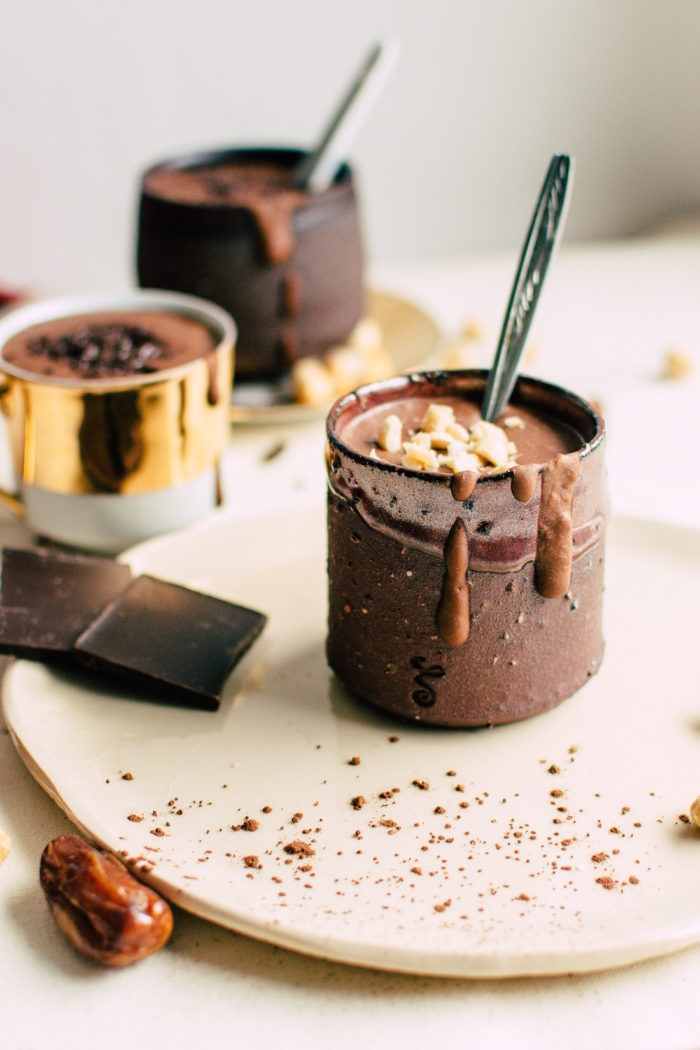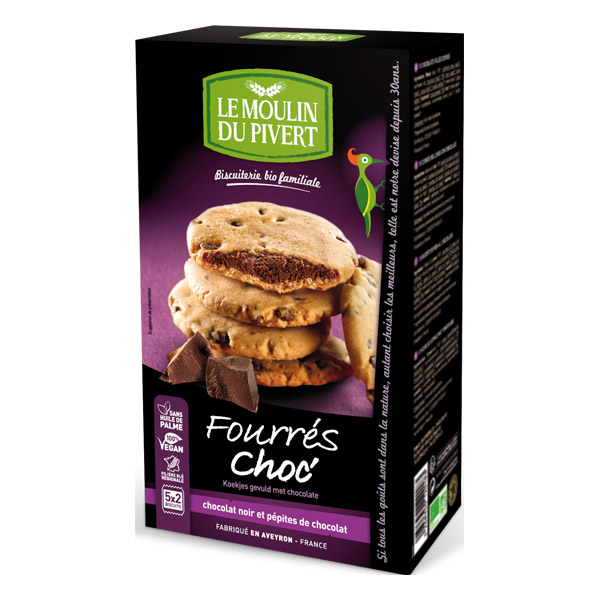As I type this, I’m enjoying a bowl of fresh farmer’s market blueberries as a snack. But mere months ago, I would have been just as likely to be munching on dark chocolate or vegan chocolate chip cookies. Until this April, I had been eating chocolate or chocolate-flavored things almost every day for ten years. In the lean years right out of college, it was a Luna Bar for lunch. In my last months in New York, I developed a habit of picking up a vegan matcha brownie from Matchabar in SoHo before going into the office. (It was a *very* small brownie!!)
This didn’t seem like a serious problem at the time because a) we have really big world issues right now and b) I only ate fairly small, vegan, organic, fair-trade chocolate and c) they helped me cope with stressful periods while adding a dose of joie de vivre. Speaking of joie de vivre, this habit continued in France in the form of a vegan chocolate chip cookie filled with hazelnut-cocoa cream that is delightfully available in every natural store. I went through a box every other day, which is probably crazy. But I felt it was another one of those happy, fulfilling experiences I couldn’t pass up on during my sabbatical.
It was only when I returned to Portland to my parents’ house that I realized my “quirky” habit was actually a full-on addiction, at least in the eyes of others. My parents seemed genuinely worried that I needed to make a chocolate run if I didn’t have any for 2 days. I didn’t want to stress them out, so I stopped eating chocolate—for about three months.
After moving out to my own place, I went shopping at my local organic grocery store stocked to the brim with chocolates and locally made vegan baked goods. This was my chance to get back at my parents and buy my own treats like an adult woman. But it was only after a whole week had passed that I realized I wasn’t even tempted to buy the sweets. My eyes had just grazed past them without even registering them as potential food. I knew that this newfound austerity wasn’t because I simply had to go cold-turkey at my parents’ house; I’d tried to cut out sugar completely in the past, and I could only handle just a few days at a time. It also wasn’t because I was less stressed or better rested than before: in France I didn’t feel stressed at all, and my chocolate craving was alive and well. So what was the difference?
The biggest difference was this: eating probiotics daily. In all the years of my chocolate addiction, I’d eaten probiotic foods only sporadically—around once or twice a month on average. I was eating plenty of prebiotic vegetables and fruits, but not so much probiotics with live cultures. That all changed while living at home, where I was eating probiotics at nearly every meal in the form of kimchi, pickles, and doenjang (fermented bean paste).
What could explain this phenomenon? Your gut microbiome is composed of diverse strains of bateria, archaea, and fungi. This microflora is surprisingly individualized, and your diet plays a decisive role in determining its composition. In a University of Pennsylvania study, candida was found in the gut microbiome of 57% of participants. Candida was positively correlated with a diet rich in carbohydrates; this makes sense because the yeast breaks down carbs and feeds on simple sugar. What’s more surprising is the positive correlation between candida and prevotella, a major gut bacteria that is mostly found in those who follow a plant-based diet. All of this seems to confirm that my addiction didn’t just stem from moral weakness, but from a perfect storm of a vegan diet heavy on carbs!
 It is difficult to pinpoint exactly which bacteria in my kimchi is responsible for combatting candida; it is likely that there are multiple strains within kimchi alone, each of which again will have a permutating effect against all the other variables within the gut. But probiotics in general have been shown to re-balance your microflora favorably. We’ve written about other wondrous benefits of eating probiotics daily, from taming mood swings to clearing the skin. For me, by far the biggest benefit was regulating my appetite and eliminating sugar cravings.
It is difficult to pinpoint exactly which bacteria in my kimchi is responsible for combatting candida; it is likely that there are multiple strains within kimchi alone, each of which again will have a permutating effect against all the other variables within the gut. But probiotics in general have been shown to re-balance your microflora favorably. We’ve written about other wondrous benefits of eating probiotics daily, from taming mood swings to clearing the skin. For me, by far the biggest benefit was regulating my appetite and eliminating sugar cravings.
My sugar-less diet hasn’t turned me into Gisele, and it hasn’t made my skin flawless. I’m not even sure that it’s made me definitely 100% healthier. What it has done is restore a sense of balance to my diet that feels very natural, wholesome, and not driven by a force greater than my own will. Most of all, I really enjoy not having a crutch or an emotional dependence on a food item. Oh, the sweet taste of freedom!😛
__
Photo: Le Moulin de Pivert; Klara Avsenik on Unsplash





